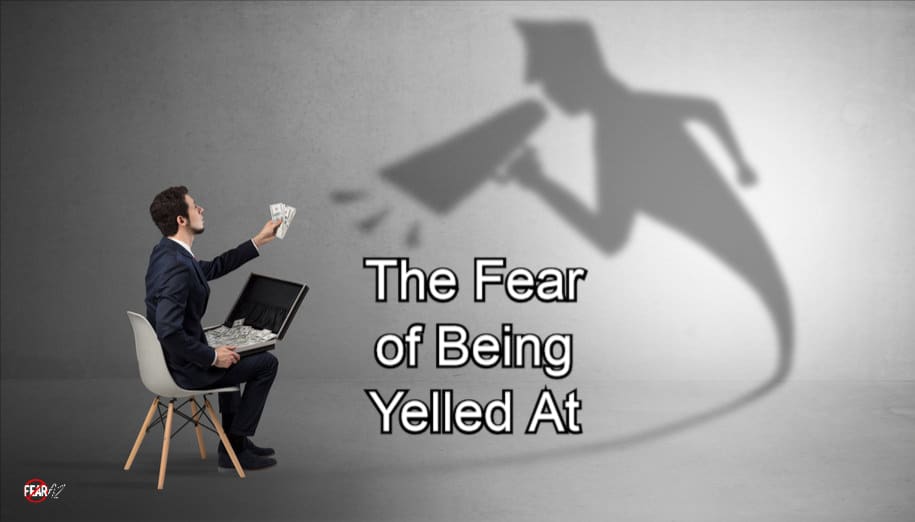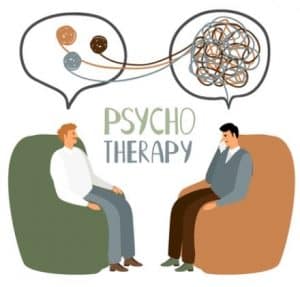Share This Article
No One Likes Being Yelled At, but Some More than Others
Do you feel terrified when someone yells at you? Does your heart race or thump when you hear someone yelling?
Do you feel anxious or traumatized when you hear yelling?
It’s normal to feel scared or on alert when someone yells at you. Yelling is a form of negative reinforcement intended to instill fear and restraint. However, a fear of being yelled at to the extent of losing control over the body is not normal.
If this fear sounds familiar to you, you may be suffering with the anxiety or fear of being yelled at.

The fear of being yelled at can make day-to-day activities stressful, especially social interaction and professional life. You might begin to avoid public places as they are prone to conflict, or you may hesitate to raise a complaint or disagree at work, fearing your seniors might yell at you. This crippling fear can take on worse forms if left untreated.
However, there is a solution. This is a common fear that is treatable.
In this article, we’ll take a look at the causes, symptoms, and treatments of this phobia.
What Causes the Fear of Being Yelled At?
The question arises: why do we experience anxiety, panic, or breathlessness when someone is yelling at us? The first reason is that our brain understands that yelling is a potential sign of a threat. As a reflex, the brain induces fear. However, this fear becomes a phobia when the symptoms worsen beyond the individual’s control.
When the shrillness in a voice, angry expressions, aggressive body language, or humiliating words send shivers down your spine or cause you to perspire, you know that you suffer the phobia of being yelled at.
Frequently getting yelled at changes the mind, brain, and body in ways that increase the activity of the amygdala (the emotional brain), stress hormones in the bloodstream, and muscular tension.
One of the causes of this anxiety stems from childhood. Being frequently yelled at as a child changes how we think and feel about ourselves and lowers self-confidence. Even after we become adults and leave home, this self-perception persists because the brain wires according to our experiences of the past.
If you grew up in a household where the immediate and most widely administered reaction to the smallest of mistakes was yelling and humiliation, you are more susceptible to developing such a phobia. Our minds gradually begin to associate great threat and ferocity with this type of behavior.
Constant yelling also lowers your self-esteem and confidence and might gradually evolve into severe forms of depression. It sows the seeds of self-doubt, which in turn affects all aspects of an individual’s life—social, personal, and professional. As a result of the anxiety of being yelled at, you develop psychosomatic illnesses and begin to suffer from physical weakness.
Symptoms of the Fear of Being Yelled At
People yell not just to exhibit anger and disagreement; they also do so to impose discipline and supremacy. The best example of the latter is the workplace. Being yelled at by your boss or any other senior official is not an alien experience.
When being yelled at is so common, how does one distinguish between a normal fear and a phobia? Understanding the symptoms of a phobia will help differentiate between a normal fear and a phobia.
- Anxiety attacks
- Heavy sweating
- Breathlessness or shortness of breath
- Increased heart rate
- Chest tightening or chest pain
- Nausea
- Dizziness
- Losing control and fainting
- Lightheadedness
How Can You Treat the Fear of Being Yelled At Phobia?
When this fear of being yelled at begins to interfere with your ability to function normally or enjoy everyday life, you must consult a medical expert, such as a therapist, who will help you. However, while the therapist does their job, it is equally important for you to make an effort as well to speed up the process.
What Are Some Methods of Self-Help?
Communicate
Seek out trusted family members or friends who offer love and support. It may be helpful to discuss your problems with them. Having your feelings heard and being able to vent frustration or pain makes it easier to get through it.
An open conversation with your loved ones may help you deal with your problem more effectively. They may even be able to help you on your journey.
Relaxation Techniques
Try relaxation techniques like meditation and progressive muscle relaxation to calm your senses. These will help your body and mind remain calm during such situations when someone is yelling at you. It can help lower the restlessness and uneasiness you experience.
Other Practical Tips
- Stay calm, and do not yell back.
- Spend some time alone.
- If someone is yelling at you because you did something wrong, accept it and see how you can fix the wrong.
- Listen to relaxing music.
- Exercise to take your mind off the yelling.
- Work on your communication skills, both verbal and nonverbal, to reduce instances of misunderstanding or miscommunication.
If this is a family member you’re dealing with, when things have cooled off, you could explain to them that it’s hard for you to deal with the yelling. See if there is a different way that you could both communicate if a similar situation arises in the future.
Professional Treatment for the Fear of Being Yelled At
The good news is that the fear of being yelled at is a treatable anxiety disorder. Therapy by a mental health professional is readily available. Your psychotherapist may even prescribe you medications along with psychotherapy.
Cognitive Behavioral Therapy (CBT)
The emphasis of cognitive behavioral therapy (CBT) is on changing the negative thoughts that contribute to the anxiety associated with the phobia. CBT focuses on changing thought patterns and employs a variety of strategies, such as making someone aware of mental distortions, journaling, and using relaxation techniques. All these are attempts to change people’s perceptions of fear.
Exposure Therapy
During exposure therapy, an individual confronts their fears and anxieties in a safe and controlled environment under the supervision of a therapist. This exposure can take place in both fictitious and real-life scenarios. This method of treatment reduces feelings of fear and anxiety by gradually introducing triggers that would normally escalate a phobic episode.
Final Thoughts
Phobias are treatable and able to be reduced to the point where they become ineffective. However, this is only possible if you take the initiative to seek help. In many cases, escaping and avoiding might seem like the easy way out, but it is far from true.
Your fear of being yelled at can be managed. How long can you go without speaking to or confronting your seniors? How long can you suffer through instances of yelling at work or at home? There are ways to overcome this fear.
With the right amount of self-help and professional therapy, you’ll soon be able to confront your fears and regain control of your life.




